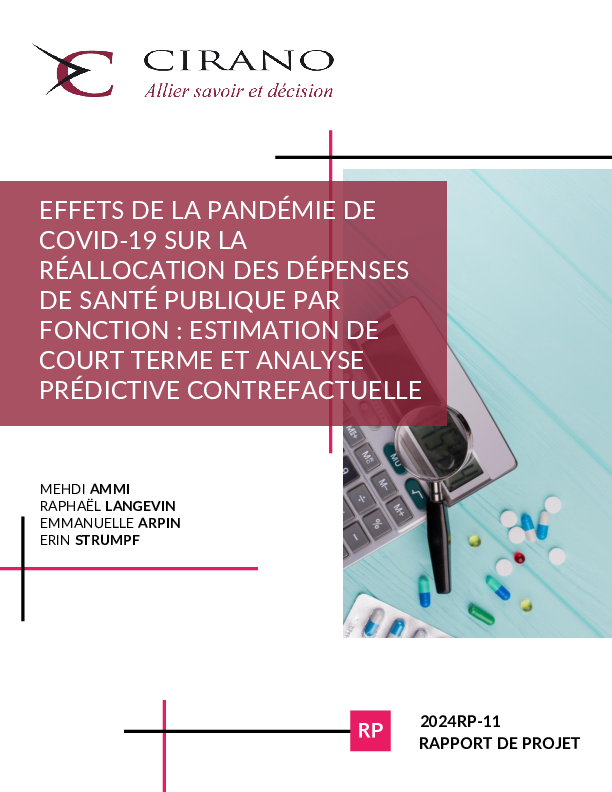Effets de la pandémie de COVID-19 sur la réallocation des dépenses de santé publique par fonction : estimation de court terme et analyse prédictive contrefactuelle
Epidemiological crises such as the COVID-19 pandemic affect healthcare systems in many ways. In Quebec, as elsewhere, this kind of major event may have influenced both total public health spending and its distribution between the various public health functions. It is therefore essential to better understand the decisions and trade-offs in the allocation of expenditures between major public health functions, and to better understand the consequences of the choices that are made.
This report provides an opportunity to improve our understanding of these issues. The analyses are based on sophisticated econometric approaches and several sources of population health, demographic and socioeconomic data, as well as epidemiological data on COVID-19 per region and from the open dataset available from the Quebec Data Partnership and the INSPQ.
The authors show that the pandemic led to a reallocation of funds, with some expenditure items being prioritized at the expense of others. Expenditures on population health monitoring, health promotion, disease prevention and Sexually transmitted and blood-borne infections (STBBIs) have all decreased compared to what would have been spent in these categories in the absence of a pandemic. The authors suggest that reduced spending on healthy living and mental health, which are part of health promotion and disease prevention, may have resulted in deleterious effects on population health.




